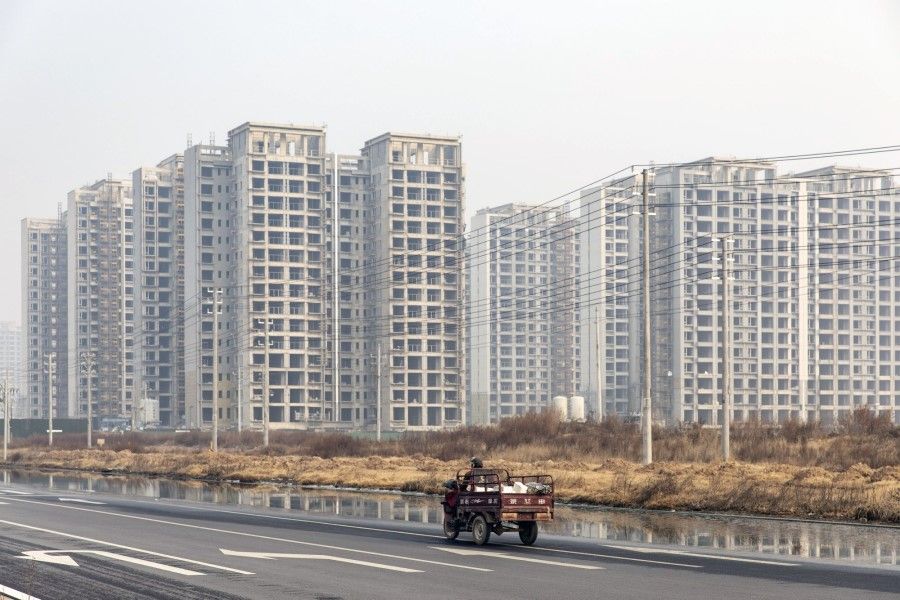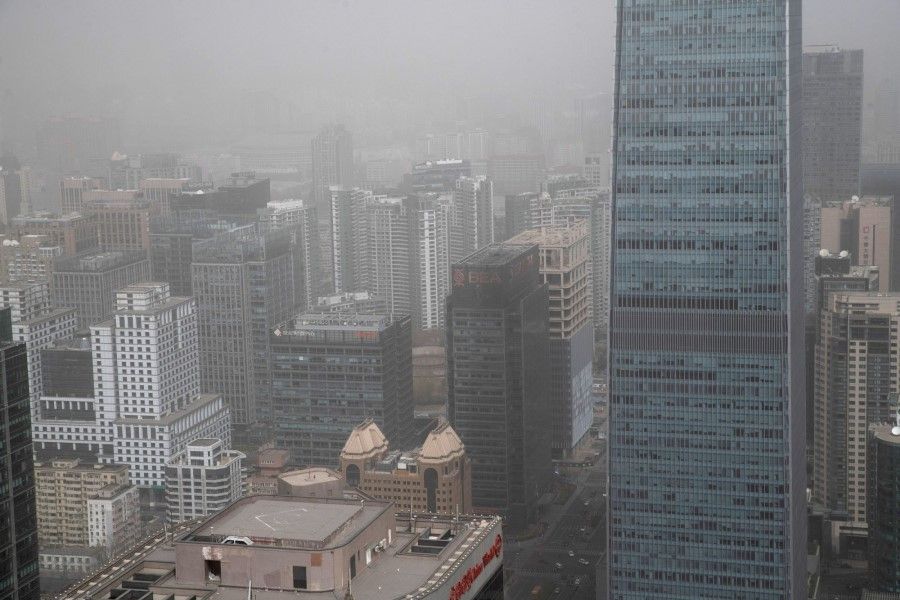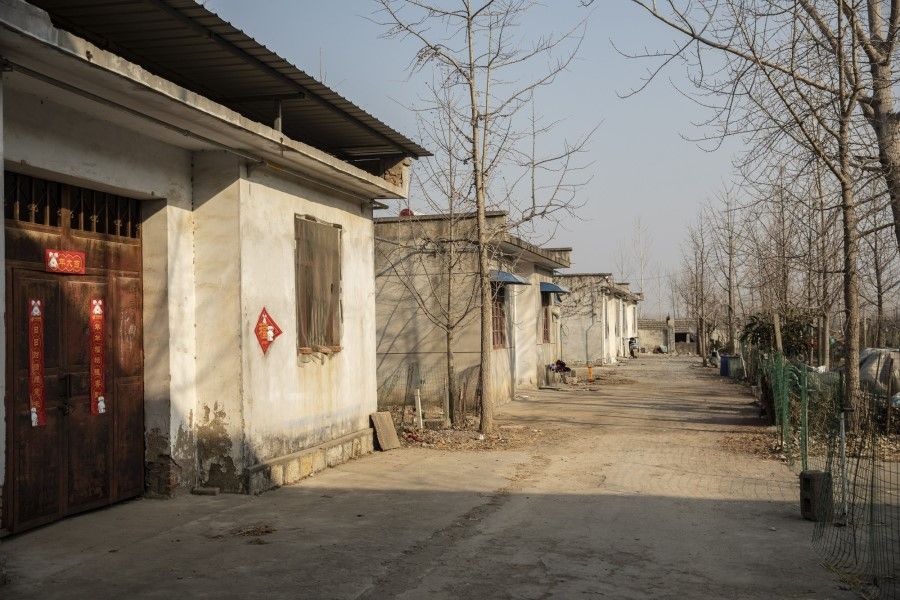Will China's economy suffer a 'lost decade' just like Japan?

Is China's economy starting to resemble Japan's 30 years ago? Some analysts have expressed such sentiments. Actually, there are both similarities and differences. A close observation of three points of similarities and differences should be helpful in predicting China's economic future.
Declining birth rate
First, a declining birth rate. According to government-released data in 2020, China has a total fertility rate (TFR) of 1.3, which is on par with that of Japan. UN demographic data, on the other hand, indicates that the figure for China has fallen to 1.16 in 2021. The declining birthrate accompanying rising incomes and a shift toward higher education is a phenomenon that China shares in common not only with Japan, but also with other countries in East Asia. Unlike Japan and other countries, though, China's declining birth rate was accelerated by a mandatory one-child policy, and the birthrate is now declining faster than Japan's.
Extending the retirement age of 60 for men and 55 for women could compensate for the decline in the size of the working population.
At the same time, the view that the decrease in size of the working population brought about by the declining birthrate will be the final nail in the coffin for China's economic growth is an exaggerated one. This is because China still has a trick up its sleeve. Extending the retirement age of 60 for men and 55 for women could compensate for the decline in the size of the working population. By doing so, China will be able to maintain its current level of working-age population ratio for another two decades.

This is, in fact, similar to Japan's past experience. Japan has compensated for the decline of its working population over the past 20 years by encouraging women to return to work after raising children and rehiring male employees after retirement age. Without doing so, Japan's "lost decades" would have been even more miserable.
The real estate bubble
Second, effects of a real estate bubble. Four years ago, a real estate executive in China said that China's real estate market capitalisation seems to have reached an estimated US$65 trillion, exceeding the combined value of the real estate markets in the US, Europe, and Japan. When people in Japan heard this, they felt that it was exactly like what they had heard 30 years ago.
Real estate prices in major Chinese cities are more than ten times the average annual income of workers, and investment yields are less than half of mortgage interest rates. Prices are too high by any measure. This effectively acts as a toxin, hindering economic growth, increasing the burden of rent for those who do not own their own homes and the burden of loan repayments for those who do buy them, and accelerating the concentration of wealth among the very wealthy people who own a lot of residential properties.
...in China, the government monopolises the supply of land and intervenes strongly in the real estate market, so the bubble will not burst easily.
The Chinese government views this negative impact seriously, and has tightened the supply of funding to developers after the resurgence of the real estate bubble in 2020. However, the result of this tightening has been to plunge the real estate market into an unprecedented recession since 2021. This draws parallels with Japan's enthusiasm for defeating the real estate bubble during the 1990s. Japan took this measure too far, and the bubble burst, opening the way for the so-called "lost decade".
Noting the above, some people may be worried that China's real estate bubble will soon collapse in the same way as it did in Japan - but this may not be the case. The key difference here between Japan and China is that, in China, the government monopolises the supply of land and intervenes strongly in the real estate market, so the bubble will not burst easily. In Japan, land prices fell by a quarter in the decade following the bubble's peak in 1991. It is hard to imagine that a similarly violent "bursting" of the real estate bubble will occur in China.

That said, it's too early to feel relieved. The CCP finds it unacceptable for real estate prices to soar even higher than they are now, but it is also unacceptable for the bubble to burst and plunge the economy into a decade-long recession.
Therefore, is the status quo the preferred option? If we compare the bursting of a bubble to the human body - it is like releasing toxins trapped inside the body to the outside. If the bubble does not burst, then the heavy burden of rent and mortgage repayments, and the toxic concentration of wealth among the very wealthy, will continue to hinder economic growth.
Whether real estate prices continue to rise or fall sharply, the Chinese government has reached a dead end with no way out. That is, there is no way to avoid paying the price for inflating the real estate bubble to this extent, and the question here is how do you pay the price, and over what kind of timeframe.
Rapidly increasing fiscal deficit and government debt
A third similarity between China and Japan is that China's fiscal deficit is increasing rapidly as a result of compensating for the decline in growth with public investment, tax cuts and other fiscal interventions.
Local government finances are particularly serious. According to an announcement by China's Ministry of Finance in January, local general budget revenues for fiscal 2022 fell 2% year-on-year but 6% compared to the original budget. In addition, land disposal revenues, which accounted for 30% of total local government fiscal revenue, fell 23% year-on-year. With reduced tax revenues due to the recession, massive tax reduction measures, and huge PCR test costs due to zero-Covid policies, fiscal 2022 has been a bumpy year for China's local government finances.
In 2022, the Chinese central government let struggling local government finances issue more special municipal bonds and let local governments build infrastructure to underpin economic growth. The amount of new special bonds issued was 3.6 trillion RMB (approximately US$522 billion) in 2020, 3.8 trillion RMB (US$558 billion) in 2021, and 4.0 trillion RMB (US$595 billion) in 2022. If we add refinancing, more than 21 trillion RMB (approximately US$3.12 trillion) of special bonds have been issued over the past three years.
In addition to this, local governments are liable not only for formal debt from municipal bonds, but also for hidden debts borrowed by financing platforms known as local government financing vehicles (LGFVs). According to a report released by the IMF in January, local government debt - which is the sum of formal debt (outstanding municipal bonds) and hidden debts - is expected to triple in five years, from 35.7 trillion RMB in 2016 to 92.1 trillion RMB in 2022, and 143.5 trillion RMB (US$21.3 trillion) in 2026.

This rapid increase is reminiscent of Japan's financial scene after the bubble burst in the 1990s, when Japan built up fiscal deficits for economic stimulus measures in response to the bank crisis. On top of this, unlike Japan with its continuing long-term zero interest rates, China has interest rates of nearly 3% on long-term national and local government bonds. Interest rates on hidden debt are even higher. In simple terms, Chinese local governments will have to bear costs of more than 5 trillion RMB in interest alone in 2026, threatening to cause a snowballing of debt.
Essentially, the central government does not give sufficient financial resources to local governments, even though the burden on local governments, such as social security, is increasing.
Looking at local government finances alone in this way might make us anxious that the Chinese economy will grind to a halt, but that concern is unwarranted. This is because, at the same time, the central budget deficit stands at around 3% of GDP as of 2022, with the net deficit (the amount by which expenditure exceeds revenue) at around 5-6%, which is still healthy.
Essentially, the central government does not give sufficient financial resources to local governments, even though the burden on local governments, such as social security, is increasing. This creates difficulties for local government finances. This also explains why local government finances have become overly dependent on revenues from land sales.
What China can do
To remedy this situation, the Xi Jinping administration, now in its third term, should urgently implement fundamental reforms to make local government finances more sustainable. If it is reluctant to do so, and focuses instead on more superficial measures, then there will be a significant negative impact on Chinese people's lives, and the country's financial system.
The mass issuance of special bonds over the past few years has taken place on the stage of local government finances, but in reality, it was more of a "national policy", implemented to support the economy. That being the case, the central government should be more responsible for the redemption of the bonds. With regard to pensions, too, it will be necessary to remedy the current situation in which financial resources are distributed from wealthy provinces to poorer provinces, and to change the system to one in which the central government carries the burden more directly.

Such a reform would lead to a surge in central fiscal deficit and the issuance of large numbers of government bonds, but even this would not bring China's economy to a standstill, at least not for the time being. China is now a country with vast net foreign assets, so the government bonds it issues can be fully digested domestically. In fact, Japan is a prime example of how the central government finances of such countries will not go bankrupt for the time being, even if they issue a large number of government bonds. Nevertheless, the Chinese are unlikely to find this reassuring.
If China wishes to maintain its growth, it will have no option but to rely even more heavily on budget deficits.
The proper remedy for China's economy to regain growth and vitality is to undergo a surgical procedure to eliminate non-performing loans and non-performing assets from both sides of the national balance sheet. However, this procedure will come with severe pain. Japan made the mistake of doing this too hastily in the 1990s and opened the door to its "lost decades". The Xi Jinping administration attempted a "soft landing" through the slogans of "new normal" and "deleveraging", but failed. If China wishes to maintain its growth, it will have no option but to rely even more heavily on budget deficits.
Furthermore, as the birth rate declines and the population ages, the social security deficit will escalate significantly. With deficits and debt piling up in the central budget, China will become more and more like Japan. Among the various common issues between Japan and China, this is what I am most concerned with.
Chinese people have always said that they would "learn from the experience (i.e., failures) of Japan". I wonder why now it seems that they are leaning more towards repeating Japan's failures.
